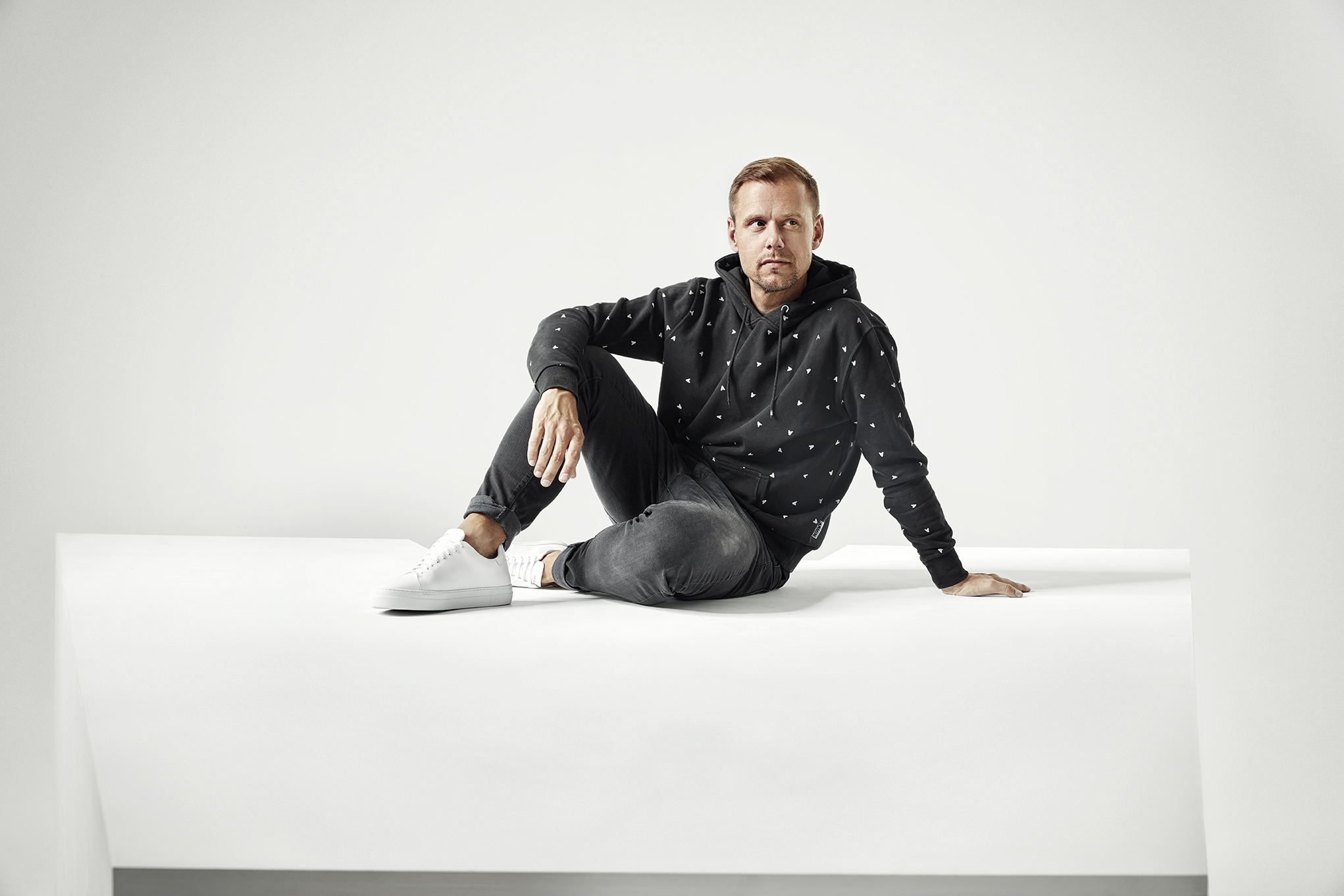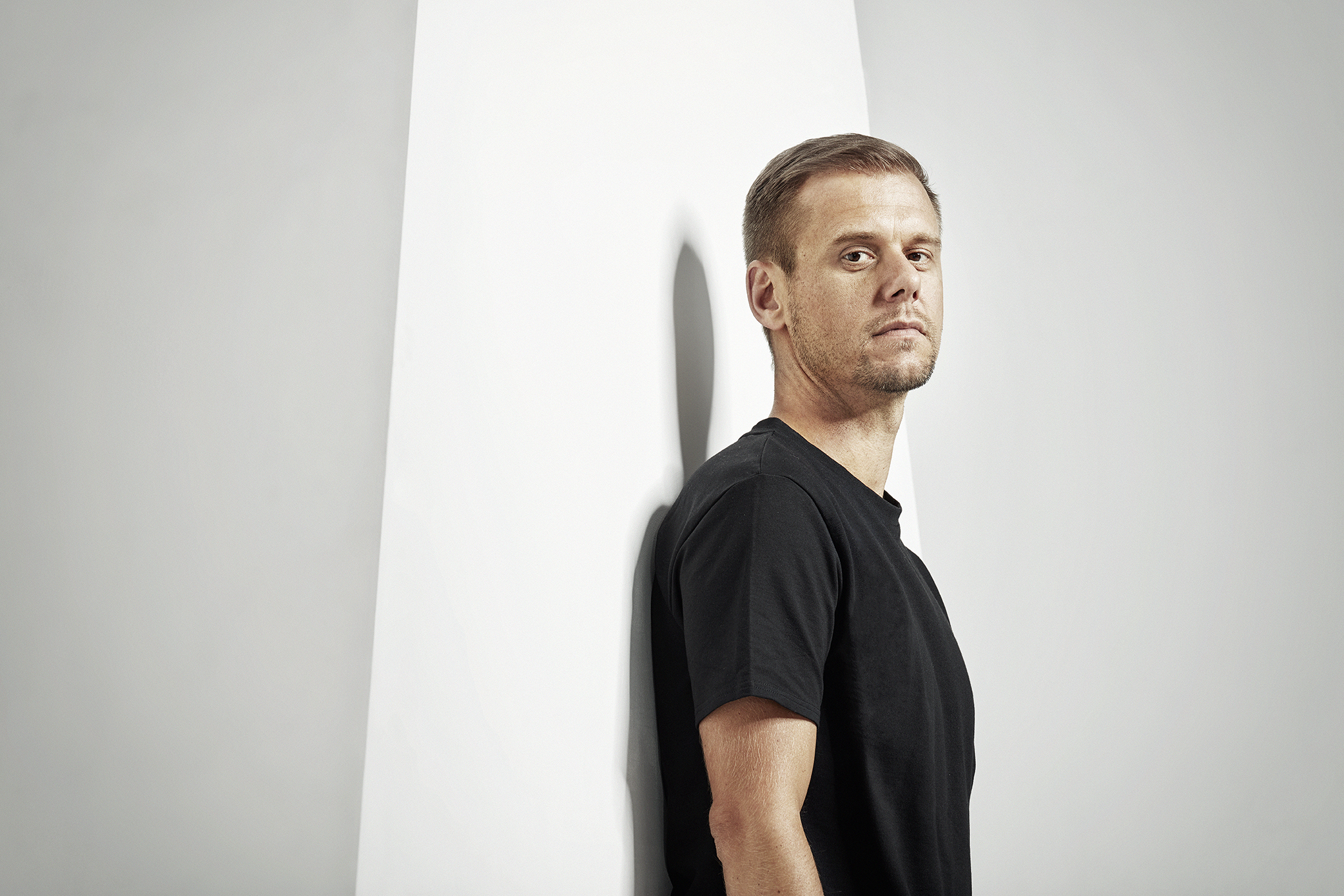It takes a certain amount of character to navigate through the highest highs and the lowest lows as a superstar in the entertainment industry and still come out on top. Many high-profile stars lose control—if it’s not the fame that breaks them, then it’s an addiction, the overwhelming pressure, burnout, or succumbing to criticism. I sat down with the legendary five-time winner of the Top 100DJ, Armin van Buuren, before his show in Vancouver, to dig deep and learn how he has the same commitment to his passion after so many years in the business.
Even though everybody saw me as the number one, I wasn’t feeling that way.
Being named the top DJ in the world is an extreme honor, something that most DJs are happy if they achieve once in their lifetime. Armin was awarded that title so many times that it’s interesting to talk with him about how it has affected his career and how it made him feel as a human being–because it’s not what you might expect. “[At that time,] I was the fourth-time #1 DJ in the world, but I wasn’t happy at all,” says Armin. “I found it very ironic that even though everybody saw me as the number one, I wasn’t feeling that way. You would think once you’ve achieved that status it would mean that now you’ve made it and you’re eternally happy. It’s not like that. I wasn’t feeling any happier than I did before when I wasn’t considered number one.”
It’s important to understand what happens when the above situation occurs: the persona of Armin becomes the main priority because he has to increase the number of shows, live up to his #1 title, build his brand, and then after a while, the man himself feels disconnected from “Armin” the brand. From all the interviews I’ve done with successful people worldwide, I’ve learned that this is a very common phenomenon. “I realized that when I was the number one DJ in the world, I wasn’t Armin van Buuren anymore. I remember that I walked on stage and there was more of a mainstream crowd also appearing along my fans because they wanted to see who the number one DJ was,” says Armin. “That title automatically brings extra pressure because you know people expect the stage to explode when you’re [that famous.]” That’s a huge amount of pressure. And while he made the impossible happen by working too hard, he wasn’t looking after himself, didn’t go to the gym, and didn’t eat well, all choices that affect you even more, when you have frequent jetlag and an extreme amount of stress.
If people say they don’t like something, it usually just means that they had a different expectation.
When you’re a well-known entertainer, more attention and fame tend to mean more criticism, hate, and negative comments. “I think most artists are perfectionists—your music, or any work you do as a creative person, is always your baby,” says Armin. “You put a lot of time and effort into it and how sensitive you are regarding criticism depends on your character. Some people have certain expectations and it’s all about how you manage those expectations. I think it’s very important to understand that if people say they don’t like something, it usually just means that they had a different expectation and [it’s not personal.] That is a very important rule that I had to learn the hard way.”
After understanding more about what shaped Armin’s attitude towards building his career, we discussed a few rules that he lives by that help him stay productive and passionate about his work.

1. Create a structure
When Armin became a dad of two, it challenged him to change and master his creative process by living a more structured life so he could spend more time with his family. “You just don’t mess around anymore [after you have kids],” Armin says. “You don’t sit and read news sites for the whole day. Spending time with my family is the driving force behind [my work now] and the reason that I’m now more productive than I was before.” Instead of starting to work at 1-2pm, or late at night, now Armin comes home from taking the kids to school, and is in the studio by 9 am, feeling ready to start the day. “I noticed that in the morning, I’m very creative,” he says.
2. Feed your creativity
Another change for Armin after having kids was that he became more creative than ever. It’s not just because of the structure he has now, but also because he had to learn how to get the most out of his limited time and how to stimulate his own creativity. “In order to be really creative, you need to have a lot of energy,” Armin says. “Your brain weighs only one kilogram, but it takes 20% of the energy of your body. The brain always wants to make the easy choices. So, in order to really go deeper and tap into your creativity, you need to be well-rested, well-fed, and you need to have some sort of structure.”
3. Stop when you can’t do more
Forcing the process is not productive. Armin also learned this the hard way: “If you’re in the studio or when you’re writing or when you’re doing whatever you do, there will be always good and bad days. But if there’s an overall feeling like ‘I’m not having a good time right now,’ you have to stop.” Resting and changing your headspace can help a lot when you’re feeling stuck.
4. Accept responsibility
When I ask Armin about what the biggest lesson is he learned during his career, and how he can still be so down to earth, he simply says, “Along your way to the top, you will find a lot of people who are disappointed with their own path and people who have expectations that are too high of their team or their management. They always blame somebody else. But you’re always, always responsible for your own success, whether you are a writer, a singer, or a DJ. It’s your life.”
Armin van Buuren is a legend, but not because of how many #1 titles he has scored, shows he has done, or followers he has. He is a champion because he was able to remain humble during the craziest career that a DJ could possibly imagine. He managed to stay connected to his 19-year-old self, the one who would ride his bicycle to school and listen to tracks on the tape he recorded from a radio show, dreaming about his future life as a successful DJ—the life he has now been living for more than 20 years.


